The 1990s marked a pivotal moment for Black cinema, expanding representation, challenging stereotypes, and directly influencing the mainstream film industry. It was an era teeming with creativity and bold storytelling that showcased the richness of Black culture, life experiences, and artistry. 90s Black movies not only entertained but also sparked crucial conversations about identity and social issues, leaving a lasting impact that resonates in today’s films. As we dive into this rich history, let’s draw inspiration, just like we do in the fitness world— pushing through barriers to see real change.
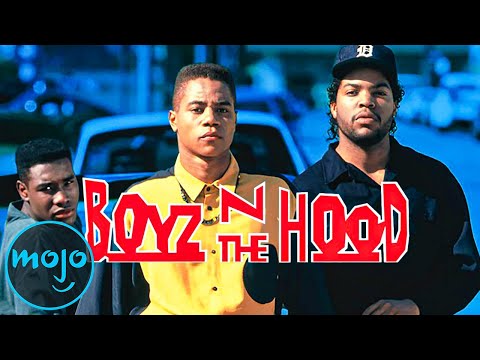
Top 7 90s Black Movies That Redefined Storytelling
These films stand out not only for their box office success but also for the essential cultural conversations they ignited. They serve as cornerstones for Black storytelling in Hollywood, teaching us not just about entertainment but also about determination and resilience— principles we can apply to our fitness journeys.
Directed by John Singleton, Boyz n the Hood brought the harsh realities of urban life to a wider audience. Starring Cuba Gooding Jr. as Tre, a young man raised in South Central L.A., the film highlighted systemic issues like gang violence and familial struggles. Characterized by its raw authenticity, it influenced future filmmakers by advocating for more nuanced portrayals of Black life. Talks of 90s Black movies often circle back to this classic, underscoring its impact on the industry and its ability to inspire young Black men to reshape their destinies.
Spike Lee’s Malcolm X, featuring a stellar performance from Denzel Washington, brought the civil rights leader’s story alive in a way that educated viewers on the complexities of Black identity. This biographical epic did more than entertain; it engaged audiences in critical discussions about race relations and social justice. Its stunning visuals and daring narrative ambition inspired countless filmmakers to weave history with artistic expression, encouraging modern storytellers to think bigger.
While technically a television show, the impact of The Fresh Prince of Bel-Air on Black culture and cinema is undeniable. Starring Will Smith, it blended humor with serious themes like racism and class differences. This iconic show laid the groundwork for future sitcoms and films to approach controversial topics with both levity and effectiveness, showing us that laughter can be a powerful tool for change. It also opened doors for Black actors, proving that they could lead in mainstream Hollywood.
Based on Terry McMillan’s novel, Waiting to Exhale showcased Black female friendships in a way that resonated deeply with audiences. The film features an all-star cast, including Angela Bassett and Whitney Houston, capturing the struggles of love and self-acceptance for Black women. The success of this film not only influenced how Black women are portrayed in media but also set a benchmark for future films exploring similar themes. It’s like the perfect workout plan designed for the female audience, lifting spirits and breaking stereotypes.
Directed by Spike Lee, Get on the Bus follows a group of Black men traveling to the Million Man March. The film explores generational divides and offers varying perspectives on race, identity, and brotherhood. By emphasizing dialogue and character development, it highlighted the beauty of diverse experiences, paving the way for future narratives that prioritize the voices of marginalized communities. It’s a reminder of the strength found in unity—a sentiment we can all carry into our fitness journeys.
Starring Janet Jackson and Tupac Shakur, Poetic Justice broke the mold by intertwining romance with social commentary. The film’s poetic narrative style and the incorporation of Tupac’s poetry enriched the overall storytelling experience, lifting it beyond standard genre fare. By tackling serious issues, it influenced a wave of films that embraced artistic uniqueness in their narratives, illustrating how creativity can spark change and fuel motivation, both in film and fitness.
This romantic comedy provided a refreshing perspective on friendships, love, and betrayal among a group of college friends. Featuring a predominantly Black cast, it changed the landscape of romantic comedies and set the stage for similar ensemble films. By opening doors for projects like Girls Trip and The Best Man Holiday, it reinforced the importance of camaraderie and the necessity of diverse narratives in the genre.
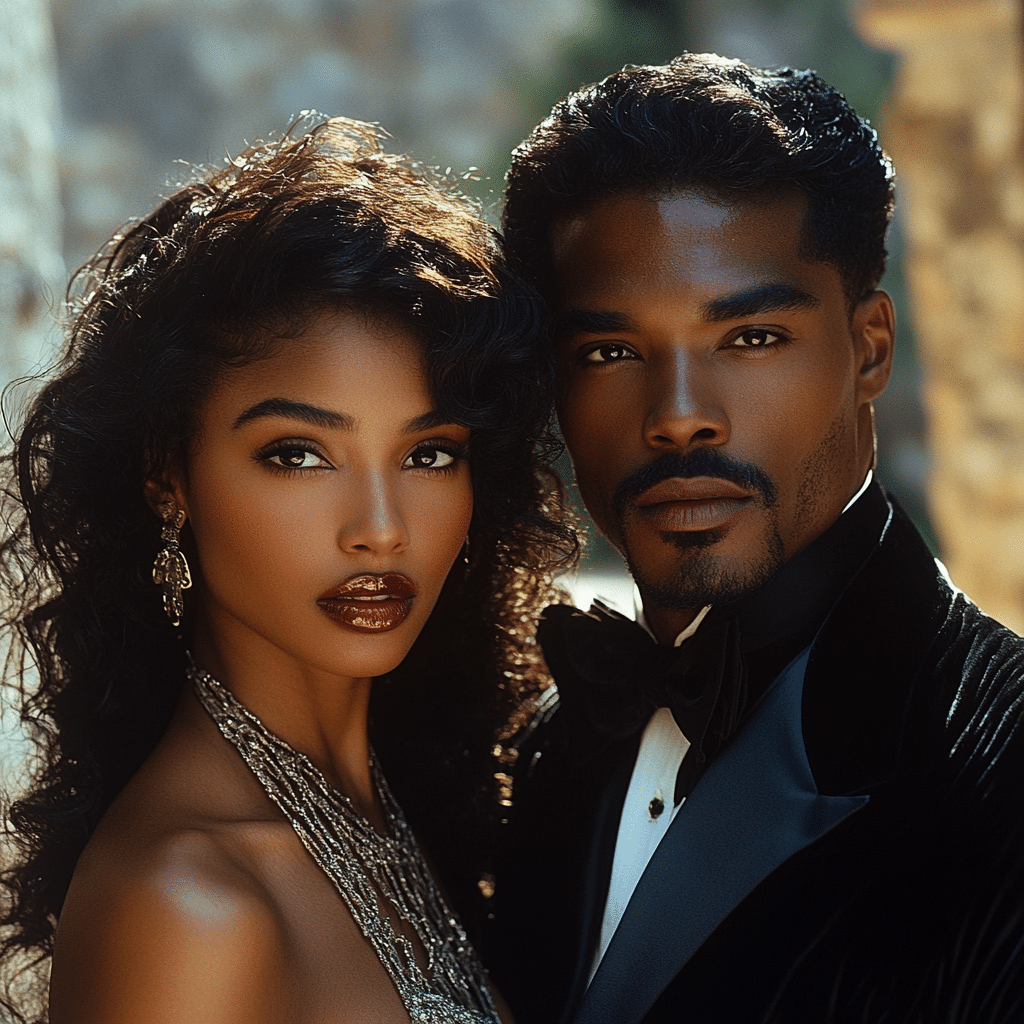
The Broader Impact of 90s Black Movies on Cinema
The cinematic contributions of the 90s didn’t just entertain; they cultivated a distinctively Black narrative framework for filmmakers to draw upon for years to come. These films confronted societal issues and complexities that many mainstream productions often avoided. They played a crucial role in demanding authenticity and representation—qualities that have gained increasing prominence in today’s discussions about diversity in the film industry.
Analyzing the impact of these 90s Black movies, it’s clear they challenged how Black characters were portrayed as well as who was telling those stories. They brought diverse experiences to the forefront, opening doors for a more inclusive Hollywood. This shift inspired a new generation of filmmakers to weave the stories of Black lives into the greater narrative fabric of cinema.
![Love At First Sight (Full Movie) [HD] Romantic | African American Movies | Free Movies |](https://www.chiseled-magazine.com/wp-content/cache/flying-press/8JZlssT12Uw-hqdefault.jpg)
Crafting the Future: Lessons from 90s Black Movies
Reflecting on the legacy of 90s Black movies, we can identify key lessons still relevant today. The importance of authentic representation, the power of storytelling to inspire social change, and the need for diverse voices in filmmaking serve as essential guiding principles for current creators. The industry is evolving, but the essence of these films continues to inspire modern cinema, reminding us that the stories of Black Americans are crucial to understanding the American experience as a whole.
The transformative power of 90s Black cinema is not a relic of the past; it’s a beacon for future generations of filmmakers and storytellers. Just as in fitness, where consistent effort leads to results, the influence of these films can be harnessed to craft narratives that reflect and shape society. Whether we’re lifting weights or lifting stories, it all boils down to the same principle: dedication to embodying authenticity and inspiring change.
In conclusion, the rich legacy of 90s Black movies has sculpted not only the landscape of cinema but has also intertwined with the fabric of our society, pushing us all forward in various avenues—whether on the silver screen or in our pursuit of personal goals. These films are like our workouts; they challenge us, inspire growth, and encourage us to reach for greatness.
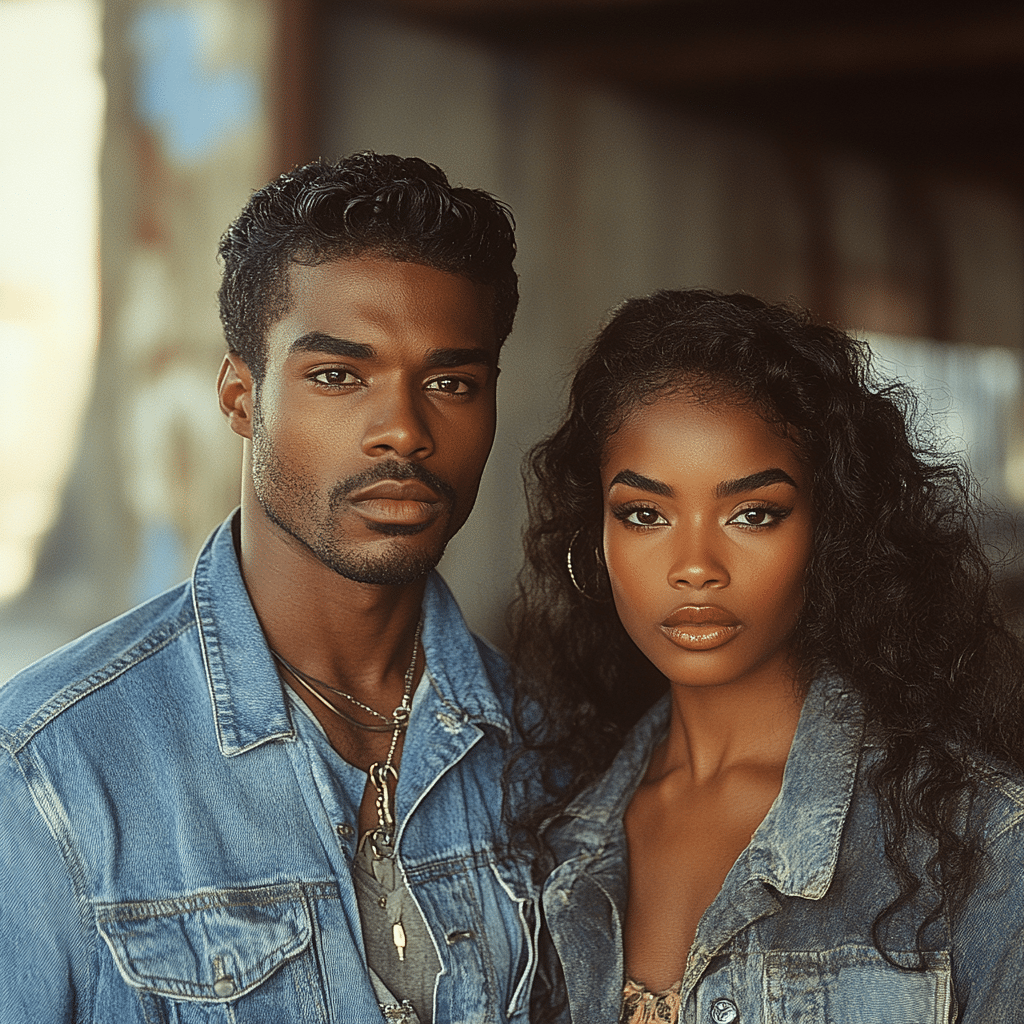
90s Black Movies That Changed Cinema Forever
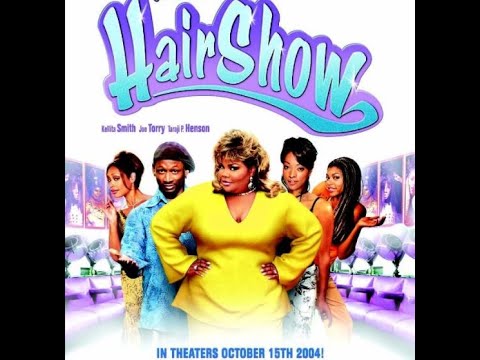
Cultural Impact and Trailblazers
The ‘90s were a transformative time for black cinema, a decade where voices that had long been overlooked finally came to the forefront. Movies like Boyz n the Hood and Malcolm X not only tackled pressing social issues but also featured prominent black actors who went on to become household names. Did you know Boyz n the Hood was inspired by the director John Singleton’s experiences growing up in South Central Los Angeles? This film was a game changer, making waves that resonated even in the nooks of local grocers. Just like how shoppers flock to grab https://www.neuron-magazine.com/kroger-digital-coupons-sign-in/ alt=Kroger digital Coupons sign in target=”_blank”>Kroger digital coupons, audiences couldn’t resist the emotional pull of these stories.
Breaking Barriers and Setting Trends
Moreover, it was during this era that comedy films like Friday and House Party defined a genre, as they portrayed relatable, everyday experiences for young black adults. The authenticity in the humor and storytelling broke the mold. Interestingly, shows like In Living Color contributed to this movement, paving the path for future sitcoms while ensuring that there was representation across the board. If you’ve ever chuckled at a quirky joke, chances are it’s stood against a backdrop shaped by these comedic films. Speaking of quirky, appears that Altered Carbon season 3 is filled with futuristic humor as well, mirroring some of that clever, improvisational spirit.
The Evolution of Representation
As the decade progressed, many actors began to embrace roles that challenged stereotypes. Films like The Best Man shone light on friendship, love, and personal growth, reshaping how audiences perceived black narratives. They lifted the curtain on complex relationships while maintaining that essential humor. Remember Maxwell caulfield, who popped up in various roles? His career offers a window into shifting dynamics in film, reminding us that every actor makes their mark in this cinematic landscape. As we look back, it’s clear that ‘90s black movies didn’t just entertain—they shaped conversations and made us see ourselves in ways we hadn’t before. Talk about an eye-opener! Just like that unexpectedly insightful feature in a https://www.chiseled-magazine.com/balance-board/ alt=Balance board target=”_blank”>balance board workout slipping into your routine.
These 90s black movies remain influential, reflecting a significant cultural shift while leaving an indelible mark on Hollywood. The flurry of creativity during this period helps the film industry evolve even today. And while we reminisce about these classics, keep your eyes peeled for the latest buzz about celebrity stories, because you never know when a https://www.moneymaker-magazine.com/celebrity-leaked/ alt=Celebrity Leaked target=”_blank”>celebrity leak might throw us back to that glorious decade!
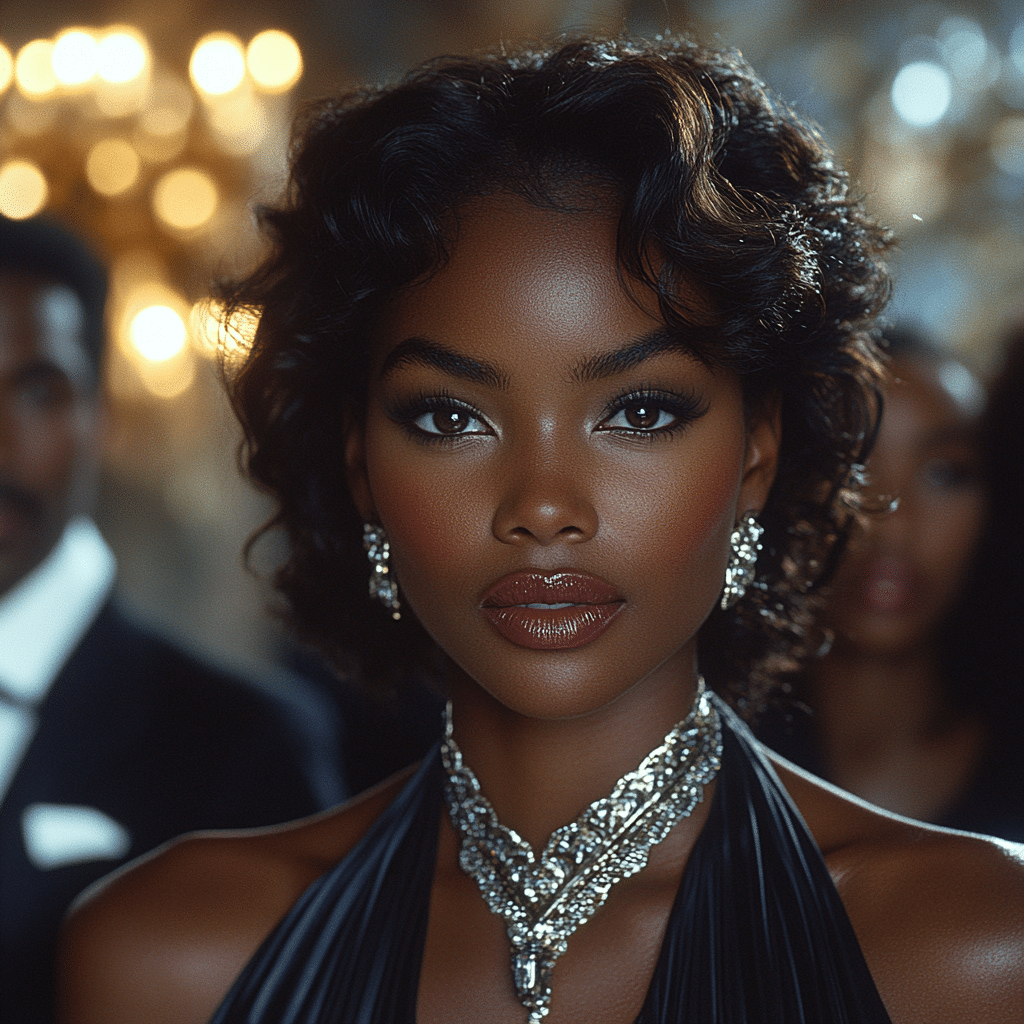
What is the classic black movie in the 90s?
“Boyz n the Hood” is often considered a classic black movie from the 90s, spotlighting issues in South Central L.A. through a powerful narrative.
What is the most popular black movie of all time?
The most popular black movie of all time is widely regarded to be “Black Panther,” thanks to its major success both critically and at the box office.
What is the 90s black love movie?
A notable black love movie from the 90s is “Love Jones,” which beautifully explores romance and relationships in an urban setting.
What black movies came out in 1998?
In 1998, films like “Beloved” and “How Stella Got Her Groove Back” were released, showcasing the talent and stories of black actors and filmmakers.
What black movie came out in 1994?
“Crooklyn” came out in 1994, portraying a nostalgic and heartfelt look at a black family’s life in Brooklyn during the 1970s.
What movie came out in 1990s?
Another significant movie released in the 1990s is “Menace II Society,” which tells a gripping story about life in the streets of L.A.
What was the first all black movie?
The first all-black movie is often considered to be “Birth of a Nation,” although many regard films like “Within Our Gates” as a pivotal work from early cinema.
What is the highest grossing black film?
“Black Panther” holds the title of the highest-grossing black film, breaking numerous box office records upon its release.
What are old black movies called?
Old black movies are commonly referred to as “classics,” highlighting their cultural significance and impact over the years.
What black movie came out in 1995?
In 1995, “Waiting to Exhale” was released, bringing together a star-studded cast to explore friendship and love among black women.
What black movie came out in 1993?
“What’s Love Got to Do with It,” which came out in 1993, details the life of singer Tina Turner and her turbulent relationship with Ike Turner.
What 90s TV show was about a black family?
A well-known 90s TV show about a black family is “The Fresh Prince of Bel-Air,” featuring Will Smith as a street-smart teen navigating life in a wealthy neighborhood.
What black movie came out in 1999?
In 1999, “The Best Man” hit theaters, focusing on friendship and love at a wedding, resonating with many viewers.
What was the biggest movie of 1998?
The biggest movie of 1998 was “Titanic,” which dominated the box office and became an unforgettable love story set against a historical disaster.
What happened in 1997 movies?
In 1997, several notable films were released, including “Men in Black” and “The Sixth Sense,” both of which made a significant impact on popular culture.
Who is the most famous all black of all time?
One of the most famous all-black cast movies of all time is “The Color Purple,” renowned for its powerful storytelling and performances.
Who is the highest grossing black actor of all time?
The highest-grossing black actor of all time is often considered to be Dwayne Johnson, also known as “The Rock,” for his massive box office appeal.
What is the number 1 biggest film in history?
The number one biggest film in history is generally acknowledged to be “Avatar,” noted for its visual effects and groundbreaking box office performance.
What’s the scariest black movie?
One of the scariest black movies is “Get Out,” a horror-thriller that cleverly explores race relations while delivering spine-chilling suspense.
What are old black movies called?
Old black movies are sometimes called “vintage” films, celebrating their timeless stories and cultural importance.
What black movie came out in 1995?
“Friday,” a beloved comedy, was released in 1995, bringing humor and life lessons about friendship and community to audiences.
What black movie came out in 1993?
“What’s Love Got to Do with It,” showcasing the tumultuous life of Tina Turner, also came out in 1993, making a lasting impact.
What black movie came out in 1999?
“Summer of Sam” was a notable black movie released in 1999, capturing the tensions and chaos of New York City during the infamous summer of 1977.


























